#[commentary]
Text
Levi is What Historia Pretended to Be
One of the things that the fairly prevalent claims I see about Levi "forcing" Historia to become Queen, or "forcing" her to accept eating Zeke, or just the general complaints I see about how Levi "treated" Historia, gets me to thinking is how Levi is everything Historia only pretended to be.
When we first meet Historia, she's going by the name Krista, and she presents a personality and image which, on its surface, appears to be exceptionally selfless and compassionate. She's constantly asking after others, going out of her way to inquire as to their well-being, standing up for them and seemingly sacrificing her own comfort and self-interest to their benefit. But, in the same way we eventually learn that Krista isn't her real name, we also come to find that Historia's personality is just as much a facade as her false name. We get our first exposure of the selfish and self-serving girl underneath during the scene between her and Ymir, during their training exercise through the mountains in winter, when Ymir calls Historia out for her secretly selfish behavior. Historia tells Ymir to go ahead by herself to base camp, while she carries Daz by herself, and Ymir points out that if Historia really wanted to save Daz, she would have asked Ymir for help, since Ymir was stronger, and thus had a greater chance of saving Daz than herself. But she doesn't ask for help, because she wants Ymir to tell people about about her selfless, final act, sacrificing her life to save another's. Here we see exposed for the first time Historia's willingness to sacrifice others for her own, selfish gain. She pretends to want to save Daz's life, but in reality, she sees him as an acceptable sacrifice for her own glorification.
Of course, this is all wrapped up in Historia's childhood trauma and the feelings of rejection she faced from her mother, tied in with what Frieda told her about how to ingratiate herself to others by being a "good person". But the fact remains, Historia is exceedingly selfish, and we get our first glimpse of that selfishness here. Something that she herself at last admits to in the scene with Eren, in the underground cavern beneath the Reiss family compound. She calls herself "the worst girl in the world" as she finally casts off all pretense in trying to win her family's approval and love, rejecting her father's offer and embracing her own, selfish desires. She tells Eren that she doesn't care if all of humanity perishes, something that we come to realize is foreshadowing, when Historia's selfishness culminates in her standing by and doing nothing to stop Eren's genocidal plans, simply because it allows her to continue living.
I think Historia and Levi are a perfect study in contrast precisely because there are some similarities between the two of them in terms of their childhood's and trauma.
Both experienced abandonment and rejection as children. Historia by her mother, Levi by Kenny. Both, I think, suffer from fear of abandonment and this pervasive sense within them that they were abandoned due to some lacking quality in themselves. We see this with Levi in him questioning Kenny about why he left him, and later, in his comment to Armin about how if he sleep's any longer than he already has, they'll all forget he even exists. We see how both Levi and Historia's sense of self-worth is wrapped up in this idea of being useful to others. How their lives will only be of worth if they're able to somehow be of benefit to others.
But while Historia's abandonment issues manifested in her pretending to be a good and selfless person who, in truth, only "helped" others so long as it benefited her somehow, and who's selfless acts served as cover for her self-serving desire to be accepted and loved, Levi's selflessness was never an act, and his desire to help others was never rooted in some secret scheme to get others to like or accept him. While Levi might feel he's of no worth to others unless he's useful to them in some way, that was never the actual motivation behind his selfless actions, never the motivating drive. I think Levi's low sense of self-worth, in fact, only serves to highlight the genuine quality of his selflessness, because he never uses his actions to win himself praise, even as, surely, he feels bereft of love or acceptance, the same as Historia.
I think this is most clearly demonstrated by the fact that Levi, in sharp contrast to Historia, never engaged in behavior that was designed to ingratiate him to others, and in fact, is markedly the opposite of that, often behaving in ways that serve only to win him people's ire and, at times, even repulses people from him. People see Levi as rude and cold-hearted and without feeling. They see him as uncharismatic and crude, and often display lowly opinions of him, or even disappointment upon meeting him. Zeke even comments on this, accusing Levi of being "unpopular" because of his blunt assertions about what sort of person Zeke is, accusing him of being a "know-it-all". We see other soldiers accuse Levi of being heartless, accuse him of getting other scouts killed, accuse him of being insane and a bad person, and Levi never fights these accusations, never defends himself. He accepts all of this criticism without complaint or personal offense, and without ever trying to convince anyone otherwise about his character. He's never tries to convince anyone he's a good person.
Where Historia had pretty much made an art of ingratiating herself to others, of wearing a mask of humility and generosity and kindness, fooling people into believing her to be all of those things, Levi has never been able to do the same, and further, he never tried, because, unlike Historia, whether he was well-liked or not was never something that mattered to him. It was never the underlying motivation of his selflessness or compassion. It doesn't matter to him what people think of him. What actually matters to him is helping them.
The fundamental difference between the two, then, is that Historia's selflessness was always an act, always a ruse to win her approval and acceptance, whereas Levi's selflessness always just was what it appeared to be. Actual selflessness, acts committed for no reason beyond the benefit they would have for others.
And we see that fundamental difference between the two demonstrated, also, by the fact that Historia is willing to let harm befall others, particularly, other people who never did her any harm or posed her any threat, so long as it benefits her in some way, (i.e. Daz, and the entire human population on earth) while Levi has never been willing to let harm befall anyone for any sort of self-gain, again, particularly, anyone who wasn't already threatening his life or the lives of others, and, in fact, often sacrifices his own well-being for the benefit of others.
It's just amusing to me how often people will criticize Levi for being "mean" to Historia, or how many people make the false claim that Levi forced Historia into any sort of position or burden that she hadn't already committed herself to previously, because Levi is everything Historia only ever pretended to be. He's selfless to an extreme fault, not only not seeking recognition or acknowledgment for his selfless acts, but outright rejecting it when he does receive it (i.e. Erwin trying to thank him for helping capture the Female Titan, Hitch trying to accuse Levi of thinking he's a hero, his disdain for his title as "Humanity's Strongest"). His compassion is such that he'll sacrifice his own comfort and peace of mind if it means easing the burden placed on the shoulders of others (letting Erwin die, giving Petra's patch to Dieter, torturing Sannes, killing for the sake of saving others lives...), his belief in the worth of other people's lives so powerful, that he actively seeks ways to ensure those lives are proven to have value by imbuing their loss with meaning, and is absolutely unable to abide the thought of anyone dying a meaningless death, his care for his comrades so immense, that he would destroy his own body to protect theirs. He has no dreams of his own, but instead dedicates himself fully to the dreams of others, fighting with all his strength toward that end, not to win acceptance or praise, but simply for the fact that he feels it's his obligation to help, a sense of obligation born out of a deep, inborn compassion.
Historia was always purely motivated by people liking her and seeing her as "good", her altruistic behavior and actions designed to garner her that image and acceptance, never out of any, genuine desire to help, and we see that core truth about her eventually manifest in her willingness to let so many innocent people die for her own life.
Levi, by contrast, was always okay with people hating him, with people thinking he's a lunatic or a monster, as long as it meant those same people would be okay, would be protected from having to experience the same horrors he had.
56 notes
·
View notes
Text

New reaction image just dropped!
4K notes
·
View notes
Text
i dont think iwtv couldve communicated the utter horror of claudia's situation better than in that scene of her being dragged on the floor by louis. its genuinely frightening to watch. it really hammers home the emotional horror that exists in louis and lestats relationship - revealing the depth of louis despair, so awful that it would make him do something like that, beg the way he did. lestats own strange panic, unsettling. and the plain, unobscured, violent horror of claudia's burned body being pulled around like a doll, never to have autonomy ever again. its not romantic, not from any point of view, not anymore. it is just horror.
2K notes
·
View notes
Text
wishing every member of the disney-mcu marketing team a very happy screaming crying throwing up as they learn that despite every algorithmically targeted test audience development by market analysis megahit they attempt to manufacture, tumblr will collectively decide without forethought or discussion that the new fandom obsession is a non-existent scorsese film premised entirely on the tag label on a pair of knock off boots
26K notes
·
View notes
Text

This is truly stiff competition for the worst case of willful false equivalence we've ever seen.
So, for those not aware: Ongoing embarrassment to gamers and the gaming industry, Mark Kern (former lead on FireFall), has been desperately trying to get Gamergate 2 going on X/Twitter... well after others have given up. If you need to get caught up on Mark, I recommend this video by documentary maker and experienced game developer, Dead Domain:
youtube
One of the latest fiascos in this mix has been the comparison of responses to character designs from Hades 2 (Aphrodite, left) and Stellar Blade (protagonist Eve, right). The post isn't by Mark, but is part of the general harassment campaign he's trying to lead.
If you're somehow not familiar with Aphrodite, she's the Ancient Greek goddess of love, lust and hot girl shit. It is absolutely perfect characterization for her to show up to a battle (or anything else) nude but for her hair teasingly covering the intimate parts of her body. But the buried lede here is, you don't fight her in Hades and nothing about Hades 2 indicates she'll fight there either, she just likes the aesthetic and has no reason not to indulge.
Stellar Blade will release on 26 April 2024, so we can't really give an informed discussion of her character. But what we do know is the studio head is the illustrator from Blade & Soul, Eve is described as being a member of "the 7th Airborne Squad" engaged in an "operation to reclaim the planet from the Naytiba", and the promotion material promises "an enthralling narrative filled with mature themes, mystery and revelation. Embrace the relentless pace, with no time to pause between moments where critical, story-changing decisions are made."
It's to be compared to games like Nier: Automata, Devil May Cry 5, Jedi: Fallen Order and Sekiro. And the screenshots look like this:
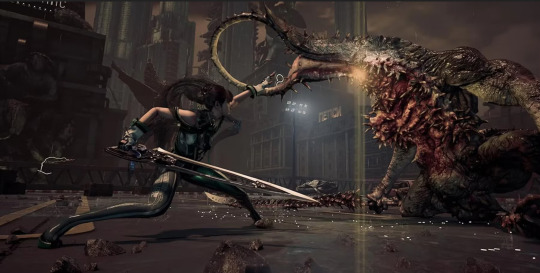
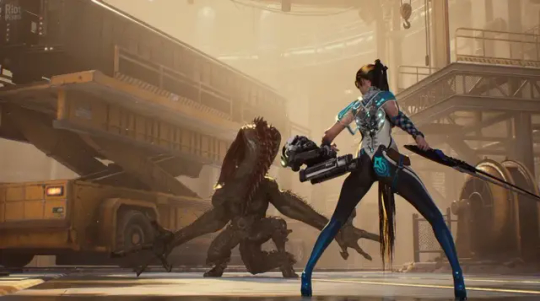
And yeah, unlike Bayonetta she's not supposed to be an unstoppable force of nature (and fashion) who is immune to self-doubt, she's supposed to be the scrappy underdog last survivor of her team.
Weird they gave her a costume that conveys... the opposite of literally everything they're supposed to be trying to tell you about her.
-wincenworks
#stellar blade#hades#hades 2#aphrodite#character design#costume design#commentary#mark kern#gamergate#dead domain#video games#false equivalence#blade and soul#nier automata#devil may cry#star wars#sekiro#bayonetta#firefall#science fiction#mythology#Greek#image#video#bikini armor battle damage#bikiniarmorbattledamage#babd#Youtube
2K notes
·
View notes
Text
William I guess had the decency (???) to at least have some emotion in his face after stabbing Vanessa. But really, it boils down to the fact that he intentionally stabbed she own child, he looked her in the eyes while doing so, and then after his flash of emotion he seemed to have the resolve of "Well, it had to be done."

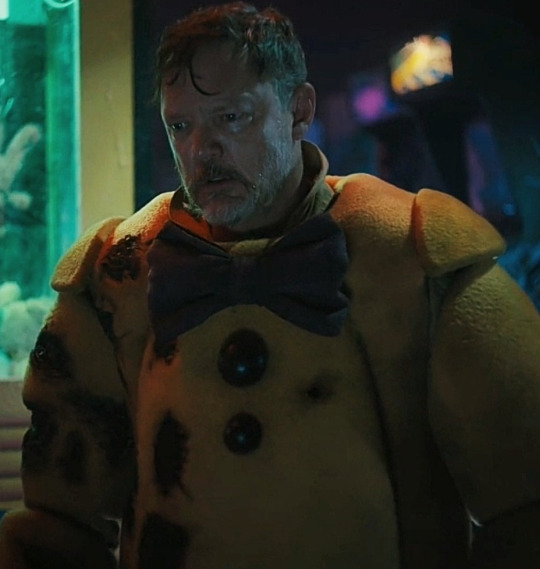
God, the Complex Toxic Characterization lover in me is frothing at the mouth about this. I wanna study them both like bugs. (x)
#HE STABBED HIS OWN BABY *ON PURPOSE* I'M GONNA SLASH HIS FUCKING TIRES!!! 😭😭😭😭😭#afton family#william afton#vanessa afton#fnaf#fnaf movie#five nights at freddy's (2023)#fnaf series#commentary#commentary: fnaf series#image and art#image: fnaf series#txt#3k
3K notes
·
View notes
Text
Revolutionary Girl Utena: Gender in Context
beneath the cut, I discuss the RGU's portrayal of gender in the context of 1990s Japan.
in Ikuhara's interview with Mari Kotani, he stated that in traditional Japanese society, "prince" meant "patriarch." the same is true in Western societies--there was a time when a prince would be an heir to a royal line. by 1997, this meaning had died out of large parts of the world. even the association between princes and traditional masculinity was fading. Saionji, the weakest, most pathetic man in the show, is a parody of historical Japanese masculinity, with his kendo and his blatantly regressive beliefs about women.
in RGU, prince may still mean patriarch, but in a far more subtle fashion. Ikuhara and Kotani discussed the changing expectations for men in the latter half of the 20th century--it became gauche to fight over a woman with one's brawn, so instead, power struggles were played out in the arena of looks and sex appeal. one can see this reflected in the character Akio, whose power as a prince arises from his ability to turn "easy sensual pleasure based on dependency" "into a selling point with which to control people."
Akio has his moments of showboating masculinity, but when preying on Utena, he operates by making himself seem non-threatening and soft.
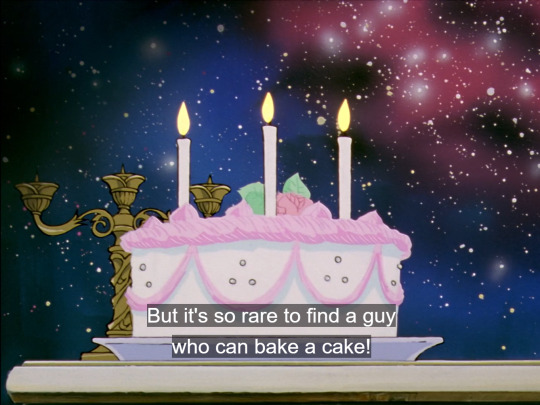
not only that, but he purports to want to allow students to express their individuality and thus approves of Utena's masculine form of dress. this is a front--by the end of the show, he's telling Utena that girls shouldn't wield swords. thus, through Akio's character, the show argues that traditionalist patriarchy in Japan isn't gone, but instead has only been papered over with false progressivism.
with all that said, there seems to be more to the character. he's taken the family name of his fiance, Kanae, and whatever material power he has in the school is dependent upon her family. in Japanese society, this is considered a humiliating position to be in, something that only a shameless man would do. the show never gives the audience any insight into how Akio feels about this--is he unbothered entirely, or are his actions against the Ohtori family an expression of his repressed anger? does he harm the children under his care to compensate for his humiliation?
this aspect of Akio's character may seem irrelevant in light of the larger, immaterial social forces at work in the show. however, I would argue that it was included for a reason. Akio, despite his status as ultimate patriarch of Ohtori, is in fact a highly emasculated character, to the point where lead writer Enokido even said that he is driven by an infantile mother complex.
to explain why Akio was portrayed this way, we have to discuss Japanese history. the nation suffered a major defeat in WWII and was forced to accept whatever terms the United States laid out for it. for an examination of how the Japanese have never truly processed those events and have plunged into modernity with reckless abandon, I recommend Satoshi Kon's Paranoia Agent. to sum it up briefly, in a very short period, the nation regained its economic footing, and by the 1980s had the largest gross national product in the world. this economic boom may have allowed Japan to maintain a sense of sovereignty, dignity, and power, but it was inherently fragile.
the infamous "bubble economy" lasted from 1986 to 1991. during this time, anything seemed possible; financial struggles appeared to be a thing of the past, and capitalist excess reached new heights. the ghosts of this period can be felt across Japanese media; for instance, think of the final shot of Grave of the Fireflies (1998), where the two dead children look down on Kobe, glowing an eerie green to imply its impermanence. the abandoned theme park from Spirited Away (2001) is explicitly referred to as a leftover from the previous century, when many attractions were built and then tossed aside in a few short years.
the bubble popped in 1992, leaving an entire generation feeling cheated. the bright futures they'd been promised, which had actually materialized for their parents and older siblings, had been lost to them overnight. economic crises are often accompanied by gender panics. to quote from Masculinities in Japan, "The recession brought with itself worsening employment conditions, undermining the system of lifelong employment and men’s status of breadwinners in general. The unemployment rate was rising, and although it never reached crisis levels, men could no longer feel safe in their salaryman status. Their situation was further complicated by the rising number of (married) women entering the workforce."
with this in mind, Akio's character can be taken as a representation of masculinity in crisis in 90s Japan. he's forced to rely on women for his position in life and has failed to save his only relative, Anthy. he tries to escape his misery through hedonism, perhaps an allegorical representation of how men tried to maintain their old standard of living after the economic bubble burst.
but of course, Akio is not the main character of RGU--the story is about girls. mangaka Yamada Reiji discussed the series in the context of the 90s, stating the following:
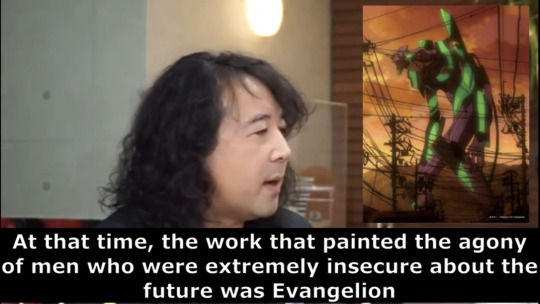
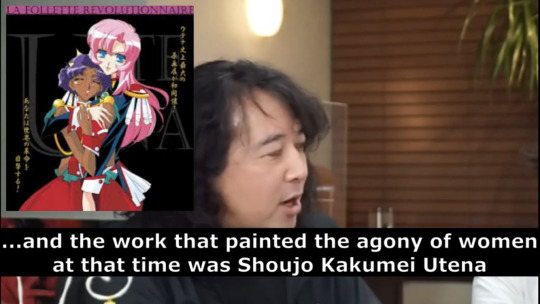
while I opened this essay by discussing the prince, the same points could be made about the princess. despite the increasing irrelevance of royalty, princess is still an important concept. how does it relate to the socioeconomic landscape of the 90s?
in Yamada's view, RGU is full of relics of the 80s; for instance, the figure of the ojou-sama, an entitled young woman who never lifts a finger for herself. during the economic bubble, it was increasingly common for women to be entirely taken care of by the men in their lives. Yamada names Nanami as a clear ojou-sama type character: she weaponizes her femininity, demanding to be rescued, doted on, and served.
however, by 1997, the ojou-sama could no longer expect to get what she wanted. from the 80s to the 90s, the percentage of women in the workforce increased around 15%; it was no longer viable for most women to be "kept" by their families. as the men experienced the humiliation of not being able to provide for their wives and children, women were undergoing a disillusionment of their own.
Yamada blames Disney for creating the ideological structure which led women astray. obviously, the company is known for its films about princes rescuing princesses. in Yamada's recounting, during the 80s, the company was infiltrating Japan through its theme parks as well; across the country, Disneylands were opening up, and people were buying into the escapism the corporation offered. Japan, as America, became a country of eternal children. its people were waiting for a prince to appear and save them.
but fairy tales can't stave off reality forever. Yamada claims that RGU embodies the rage of young women who woke up one day and realized that they had been raised on a lie. this anger pervades the work from beginning to end.
though RGU was created in a particular social context, its lessons can be extrapolated to any time and place. as the first ending tells us:
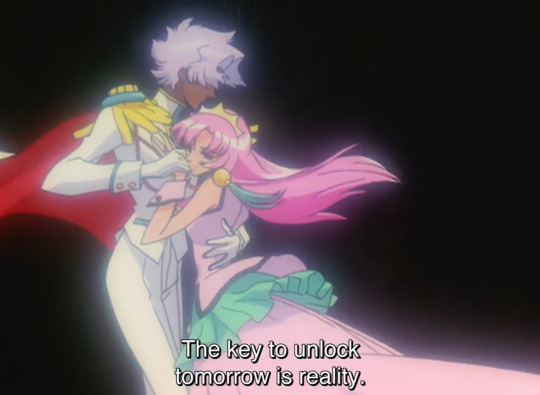
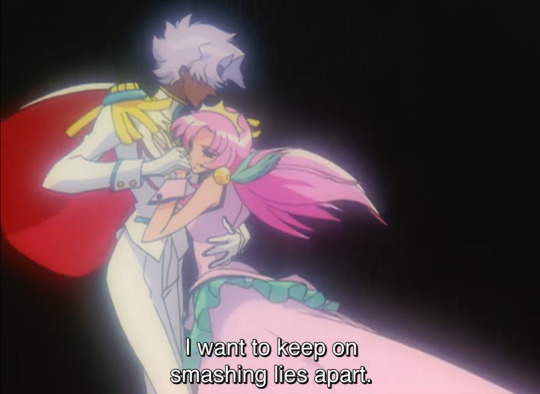
I hope this essay helped provide more context for the series. thanks for reading!
#rgu#commentary#revolutionary girl utena#this was originally a part of another essay but i revamped it and added a lot more detail
673 notes
·
View notes
Text
David Mirkin discussing which of The Simpsons writers are gay
1K notes
·
View notes
Text
Tumblr for me is like the gay neurodivergent version of Twitter (as someone who has used the app maybe twice?)
The only people I care about keeping up with are on this app (Neil Gaiman)
And I only use it to dump my useless and universally unwanted opinions.
It's the same thing, but instead of talking about politics, people talk about David Tennant.
#david tennant#good omens#10th doctor#tumblr#twitter#commentary#neil gaiman#neurodivergent#gay#queer
2K notes
·
View notes
Text

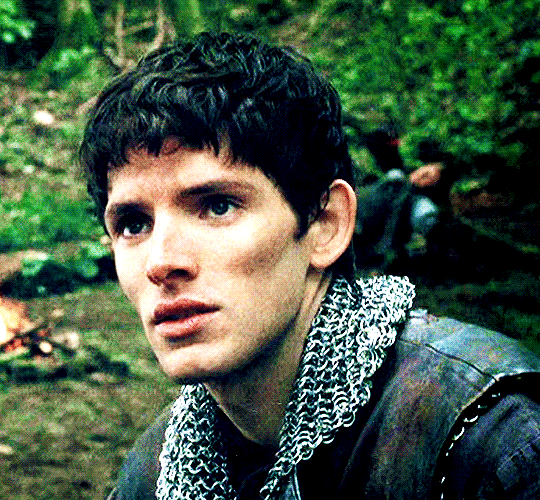
Colin: Did you actually fall asleep on that log?
Bradley: I might have done. It wouldn’t surprise me. (laughs)
Bradley: I was trying to create the image that basically you’ve got this dashing knight called Lancelot, and then you’ve got (laughs) an oaf in the background just … who is asleep, snoring, mouth wide open, just looking incredibly unappealing.
Bradley: ‘Cause I think essentially, y’know, Lancelot is the better choice for Guinevere.
MERLIN | 2x04
"Lancelot and Guinevere"
#merlin#merlinedit#merlin bbc#bbc merlin#season 2#2x04#lancelot#gwen x lancelot#bradley james#colin morgan#commentary#tvedit#perioddramaedit#*#jd
711 notes
·
View notes
Text
Ok like I’m not really a massive analysis of film and story and stuff, but I’m trying to get more thoughtful when absorbing stories and just. GOD dungeon meshi got me with a heavy hitter this episode.
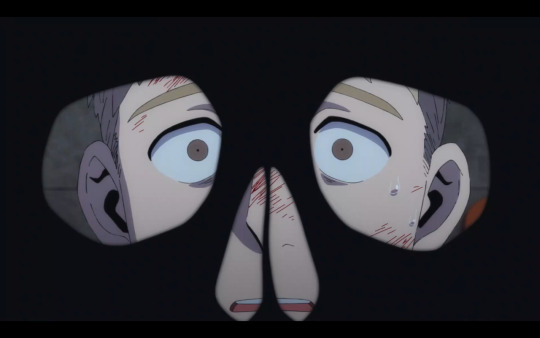
The raw emotion that filtered through me as I watched the backstory cutscene. Of Laois and Falin growing up, of her saving him. Saving him and when HE needed to save HER in that final memory she said to abandon her. How awful that was, something Laois commented on himself. That they couldn’t “Adventure together anymore”. The way she was so willing to fall, and for that to be the end of it, and for others to continue without her. Like UGHHHHH. The way that despite that willingness to be left to die forever, the others still took on the labor of love to go after her. To try. Because she matters to them and they’d do the same self-sacrifice for Falin despite her not minding being abandoned. Still, after fighting tooth and nail, it falls apart. It’s her staff they lift from the dragon. Her skull. Just bone. And while I haven’t read the manga, and I don’t know where it goes yet, it feels so utterly damning. I’m on the EDGE OF MY FUCKING SEAT.
I CANT WITH THIIIIISSSSSS. I CANT BE NORRRMMAAALLLL RRAAFGHHHHHH
#dungeon meshi#delicious in dungeon#delicious in dungeon spoilers#dungeon meshi spoilers#commentary#raw thought matter#i cant do this#i cant watch anime normally#i signed up for funny food show#what the fuck is happening
595 notes
·
View notes
Note
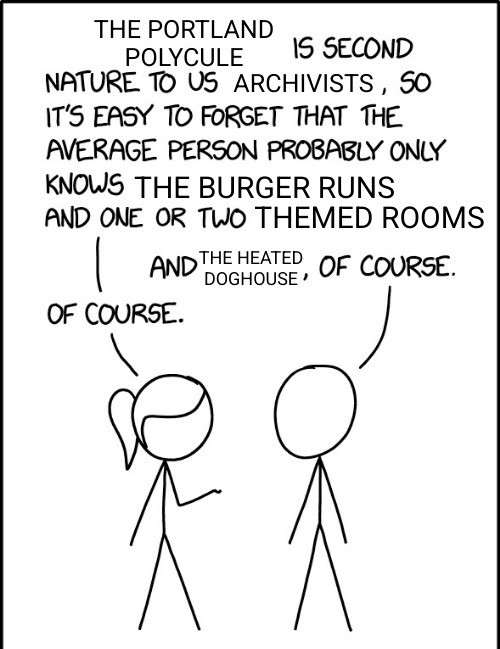
I've tried explaining this situation to people I know IRL and it really does feel like this.
1K notes
·
View notes
Text
I'm gonna need the entire iwtv writers room to read orientalism by edward said before they start writing armand and marius' show dynamic Tbh
551 notes
·
View notes
Text
As a big-time tumblr influencer of..
*checks notes*
two-hundred and fifty followers
Can I influence you to be happy? To wear that silly outfit for a day, an hour, or just a moment, and look in the mirror and experience joy?
341 notes
·
View notes
Text
This is from the features commentary where the creators talk about the Broppy kiss and how they were going to treat it. And they gave a shoutout to all the Broppyists out there
#broppy#trolls#branch x poppy#trolls branch#trolls poppy#trolls band together#trolls bts#behind the scenes#features#commentary
511 notes
·
View notes
Text
What if Daniels Christmas present is the Red Bull seat for 2025 and Max was giving us a clue by saying "he can have whatever he wants" and "don't worry" 🤡

167 notes
·
View notes